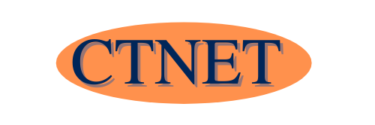In this blog post, I will share how I use Readwise Reader to capture and filter content I discover online for potential future consumption and learning. As I discussed recently in a blog post, information overload is a side effect of living in the information golden age. We all need to learn ways to manage the impact of information overload.
Using Readwise Reader was one of my attempts at managing information overload. I’m not suggesting that this approach will work for you. Hell, it might not even work for me in the long term. But it is something you should consider trying.
What is Readwise Reader
Readwise Reader is a read-later application. A read-later application allows you to save web content for later. The reader application has taken this further than most other read-later applications, as it also supports PDFs, EPUBs, and YouTube videos.
I have just realised that Readwise Reader has become a digital library containing much of the digital content I have encountered over the last 12 months.
Readwise Reader has several workflows that you can use, and it has taken me a while to settle on my current workflow.
It is currently in Beta release and requires a Readwise subscription. I will link to the Readwise review so you can learn more about the related Readwise application.

My Readwise Reader process
The whole point of an application like Readwise Reader is to reduce the fear of missing out, as you can divert the stream of information you come across while using the Internet into your personal reservoir of information and knowledge, which you can consume at your pleasure.
I find a good tweet on Twitter or Mastodon and share it with Reader easily, especially with the mobile app. Find an interesting web article, save it to Reader, find an interesting YouTube video, save it to watch later, and use the text extracted from the video. It allows me to highlight the text I want to keep in my notes.
You have to be careful not to save everything, and I try to limit myself to things I find interesting. Anything related to things I’m likely to or plan to write about. Or anything I think I might need to refer to at some point.
As I stated earlier, I’m using the later, shortlist, archive terminology in Reader, which I only switched to during the last few months. The reason for the change is that I’m hoping that by only concentrating on the shortlist, as those are the ones I plan to read. The others are just like books I might choose to read in a library. The archive is for anything I have read or don’t think is relevant anymore.
I made my choice after watching a YouTube video in which the founder of Readwise suggested using Later, Shortlist, and Archive, which I have linked to.
Recently I read an interesting article suggesting that owning books you haven’t read could be beneficial, which I have linked to. I liked to think of this as a digital form. In the hope, that it will reduce the stress of having so many unread articles, which will only grow.
I aim to keep the notes that I shortlist on discovery to a minimum, as that is the list of content I will read to the most essential notes. I currently use the following criteria when deciding if something should go into my shortlist.
- Things I’m planning or likely to write about
- Anything that will help me to improve as a person
- Anything found during a deliberate search of the Internet
- Anything that has grabbed my attention and looks very interesting
Later, in the default status, I will include anything that looks interesting and that I think I’m likely to want to read at some point or background information on a subject I’m interested in. Most of the content I add to the reader app will be on the later shelf.
As I have mentioned before, content I have consumed or that is no longer of relevance or interest will also go into the archive. I can always use Reader search functionality to resurface this content in the future if required.
Conclusion
While I’m currently happy with how I’m using Reader to process the mass of information coming into my system, I know an information overload is likely around the corner. That is why I know my current system will likely evolve over time. Therefore, I aim to explore other personal knowledge management systems and look for ideas that might work for me.
As I have said in other content I have written, developing your Personal Knowledge Management system is a personal journey, but we shouldn’t lose sight of why you are on this journey. With this in mind, I have linked you to our section on Personal Knowledge management systems.
